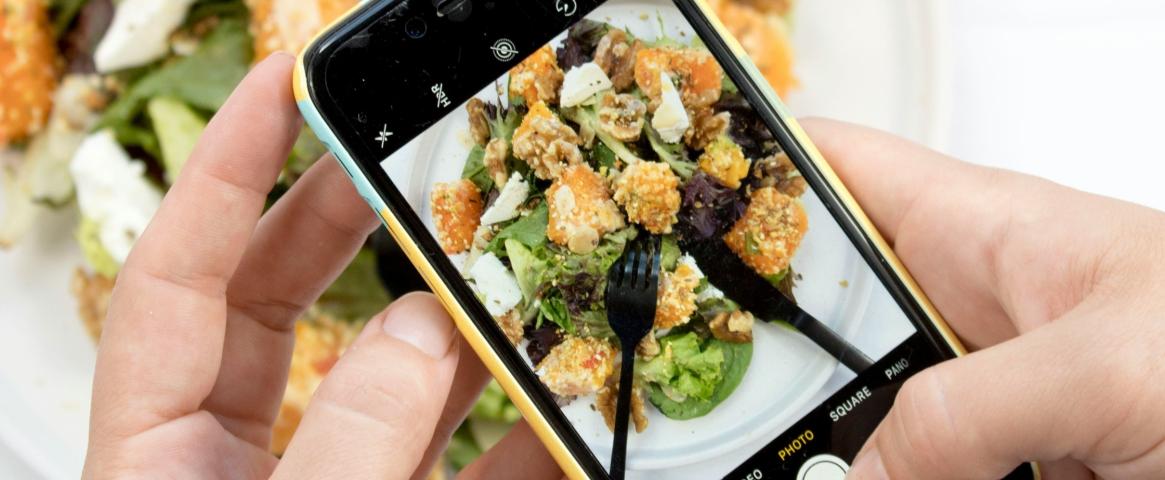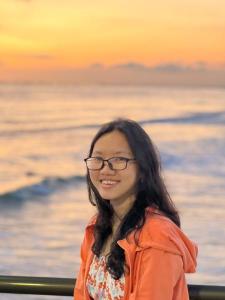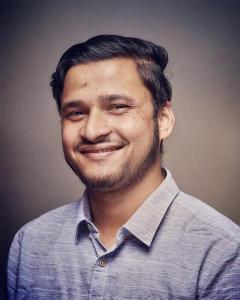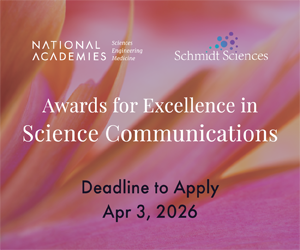This student story was published as part of the https://www.nasw.org/article/2025-david-perlman-virtual-mentoring-program organized by the NASW Education Committee, providing science journalism experience for undergraduate and graduate students.
Story by Michelia Hoang
Mentored and edited by Saugat Bolakhe
In the world of personalized nutrition, a new trend has taken hold: you can pay hundreds, mail your poop, and get a custom diet plan. But what could go wrong?
It took a mini-stroke for Tim Spector, a genetic epidemiologist at King’s College London, to realize that his own diet may have harmed his gut microbiome, contributing to poor health. Along with his colleagues, he launched a personalized nutrition app called ZOE. As people are turning to tech for personalized health advice, ZOE stands out for digging deeper than calorie counts. Instead, the app combines microbiome sequencing and machine learning to analyze users’ gut bacteria, blood sugar, and fat responses, offering tailored recommendations on what and how to eat.
The app is claimed to be built on the world’s most in-depth nutrition study, including recent observational studies and clinical trials. Yet experts have kept raising questions about its practicality of use.
AI learns from your gut microbiome
What sets ZOE apart from other nutrition apps is the promise of personalized dietary advice powered by artificial intelligence. “We’re using machine learning to understand how people respond to food, by analyzing massive datasets from our studies. These reveal how someone’s blood sugar is likely to respond, given their specific microbiome,” explains Francesco Asnicar, a bioinformatician at the University of Trento in Italy and a scientific collaborator at ZOE.
With these AI-powered predictive tools in place, the next challenge lies in diversifying datasets. “Right now, we often have more data types than people, like hundreds of gut bacteria types per person, which makes it hard to train reliable systems,” Asnicar says.
This push for more robust data hasn’t slowed ZOE’s momentum. Since the app launched during the COVID-19 pandemic, the company has already attracted over 130,000 active subscribers. It counts several celebrities, such as British TV presenter and women’s health advocate Davina McCall as well as entrepreneur and media personality Steven Bartlett, among its public supporters.
When one size fails all
The app is easy to use. It scores meals from 0 to 100 based on predicted effects on blood sugar, fat levels, and gut health. These scores are color-coded like traffic lights, with “super green” meals encouraged and red ones to be avoided. To help users improve their scores, ZOE suggests food swaps, offers nutrition tips, and provides coaching.
But behind the app’s colorful visual lies a growing wave of ethical and scientific concerns from experts. As reported by The Guardian, these concerns include a lack of clear clinical screening, overly generalized recommendations, and commercial reliance on still-emerging science — such as microbiome and glucose testing — with limited regulatory oversight.
While ZOE is designed to promote healthier eating habits, nutritional therapist Nicola Moore has seen worrying trends. “I’ve had clients say things like, ‘I had a bad day, so I just changed what I ate to get a better score,’” she says.
Moore, whose practice emphasizes intuitive eating and emotional well-being, describes eating as similar to listening to jazz, which is attuned to the body’s cues. She fears that apps like ZOE will turn meals into a slot machine, where users chase a perfect score.
Moore notes that the app’s numeric scoring system can increase users' shame and anxiety rather than provide guidance. “Eating should be about enjoying the sensation of hunger and pleasure, focusing on color and texture and taste rather than numbers,” she adds.
Beyond the emotional toll, some experts argue that the app’s recommendations can feel overly generalized. According to sport dietitian Renee McGregor, nutrition lead for the English and Scottish National Ballet, the app lacks a thorough screening process to determine who it is actually suitable for, particularly individuals with specific clinical or athletic needs, which can lead to serious health consequences.
Currently, ZOE advises individuals with diagnosed eating disorders to refrain from using the app, but there is no enforced screening mechanism and clinical oversight to ensure compliance.
“I had a lady who told them she was training for a marathon, and the app didn’t question it. She ended up with hypothalamic amenorrhoea,” McGregor says. She added that others have developed disordered eating or hormone issues after following ZOE’s advice.
In July 2024, McGregor’s team raised concerns directly with ZOE. They recommended better screening for at-risk users, questions about menstrual health, and more clarity on how food scores are calculated. They also challenged the app’s heavy focus on gut microbiome testing and its assumption that food alone drives blood sugar changes. Finally, they questioned the choice of public ambassadors, many of whom have had troubled relationships with food and exercise.
But McGregor says that her concerns were dismissed. “Initially they said they wanted to bring us in to educate and support but then they changed their minds and said they were going to use “independents”,” she says.
In addition to the health and psychological risks, experts have also raised flags about the handling of sensitive health data. Bioethicist Jonathan Herington at the University of Rochester warns of serious ethical gaps in ZOE’s model. “If ZOE were to go bankrupt, who owns the user data? Could it be sold to third parties?” he asks.
That concern isn’t hypothetical, as a similar scenario happened with genetic testing company 23andMe, which filed for bankruptcy a few months ago. With over 15 million users, it was reported that users panicked and rushed to delete their data amid fears of identity theft, blackmail, and medical fraud.
Dr. Herington also emphasized that the app itself has not been evaluated by regulatory agencies. “The baseline for any health product should be clinical trials and FDA approval, especially if it claims to offer health-related advice,” he adds.
The backlash has sparked broader questions about the future of digital health and nutrition. As interest in personalized nutrition continues to grow, experts agree that the field must find a balance between innovation and ethics. That means prioritizing emotional well-being, protecting privacy, and ensuring that science-backed tools are used with professional support.
“We need nutrition apps that educate, not dictate,” Moore says.
Michelia Hoang is a senior at the University of Rochester, where she majors in Molecular Genetics and minors in Journalism. With a passion for nutrigenomics and personalized nutrition, she aspires to become both a metabolic dietitian and a science writer. She currently serves as a content editor for the UR Journal of Undergraduate Research and has published narrative poetry in the university’s Art & Literature Journal. Email her nhoang4@u.rochester.edu. Saugat Bolakhe is an independent science writer/journalist based in New York City. He is a regular contributor to outlets including Nature, Scientific American, Science News, Wired, and National Geographic among others. In 2024, he was also recognized with the National Science Journalism Award by Nepal Academy of Science and Technology. He also works at The Open Notebook, where he mentors early-career international science journalists. He was also a mentee in the NASW mentorship program in 2021.Top photo: A user takes a photo of a meal. Many food tracking apps are exploring photo-based food logging. (Source: Photo by S O C I A L . C U T on Unsplash.
The NASW Perlman Virtual Mentoring program is named for longtime science writer and past NASW President David Perlman. Dave, who died in 2020 at the age of 101 only three years after his retirement from the San Francisco Chronicle, was a mentor to countless members of the science writing community and always made time for kind and supportive words, especially for early career writers.
You can contact the NASW Education Committee at education@nasw.org. Thank you to the many NASW member volunteers who lead our #SciWriStudent programming year after year.
Founded in 1934 with a mission to fight for the free flow of science news, NASW is an organization of ~2,600 professional journalists, authors, editors, producers, public information officers, students and people who write and produce material intended to inform the public about science, health, engineering, and technology. To learn more, visit www.nasw.org.





